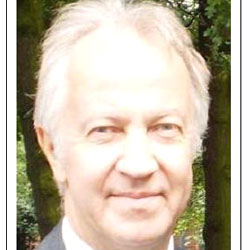International Media Could Hold the Key to Olympic Bid Success – Keir Radnedge
January 31, 2013
A neighbour took delivery of the large brown box. Unwrapping it was like working ones way through one of those Russian dolls. Eventually the treasure was revealed: nestling deep within all the security packaging was the Istanbul 2020 Olympic Bid Book.
This is a major oeuvre: like every bid book, of course.
Unsealing the volumes is to discover each last miniscule detail of the city’s proposal to win host rights to the Olympic Games. Complete with diagrams, statistics, tabulations, graphics, illustrations and maps.
All, of course, in both English and French. Or rather, French and English (French is on the left-hand pages).
Admiration for the encyclopaedia is tempered by a nagging doubt over how many members of the International Olympic Committee will read through all three bid books to inform the geographical direction in which they cast their vote in Buenos Aires on September 7.
Tokyo or Istanbul or Madrid (to put them in IOC draw order)?
Estimates – entirely informal, not to say anecdotal – suggest that comparatively few undertake the exercise though it is expected, of course, of all members of the evaluation commission which Sir Craig Reedie will lead around the three cities in March.
They will then come up with yet another report of their own – also running to intimidating size and complexity – of which the executive summaries will be the most widely-thumbed.
The media’s response to the publication of all the bid books on the internet, the day after they had been presented to the IOC in Lausanne in early January, was to look no further than the cost estimates. Headline figures make for good, well, headlines.
But then, volumes such as these are more easily assessed in book rather than online form.
Each and every professional in the sports industry will head first towards his or her particular chapter of interest. Hence this particular writer dug into the Istanbul book to see, as a priority, what the Turkish bid is offering by way of media facilities.
The promise is, in certain significant specifics, an improvement on London 2012.
Firstly, Istanbul is proposing a media accommodation village, an Olympic standard which was ditched by London 2012 on the basis that all of the park was needed for venues and, in any case, the city had many hundreds of hotels (never mind the prices).
Istanbul is offering media village accommodation of three-star standard and, when the journalists get to work, fully-cabled internet connections in the International Press Centre and venues PLUS the bonus of all-over free wifi.
Non-media sectors may be ignorant of the fact, but the inability of successive Games organisers to provide free internet access has been an increasing irritant for the international media (An issue worthy of a column all to itself).
Beijing levied disgracefully extortionate charges for internet access; Vancouver 2012 was something a rip-off too. London 2012 did reduce the charges but did not concede the pay-to-connect concept.
Also, while London 2012 provided cabled internet access at all work stations it did not provide free wifi except in a handful of hotspots. This was a particular nuisance for journalists who utilise a laptop in combination with, say, an iPad or other net-needy device.
Istanbul 2020 has that one sorted.
Journalists do not have a vote in Buenos Aires on September 7. But, as was keenly noted during the 2018 Winter Olympics campaign, positive reports help to generate momentum and a feel-good factor around the most media-friendly bid.
Hence, all three bid committees should expect some self-interested questioning from journalists when the media follows Reedie and his commission into town.
Keir Radnedge has been covering football worldwide for more than 40 years, writing 33 books, from tournament guides to comprehensive encyclopedias, aimed at all ages.
His journalism career included The Daily Mail for 20 years as well as The Guardian and other national newspapers and magazines in the UK and around the world. He is a former editor, and remains a lead columnist, with World Soccer, generally recognised as the premier English language magazine on global football.
In addition to his writing, Keir has been a regular analyst for BBC radio and television, Sky Sports, Sky News, Aljazeera and CNN.
Keir Radnedge’s Twitter: @KeirRadnedge
{jcomments on}


